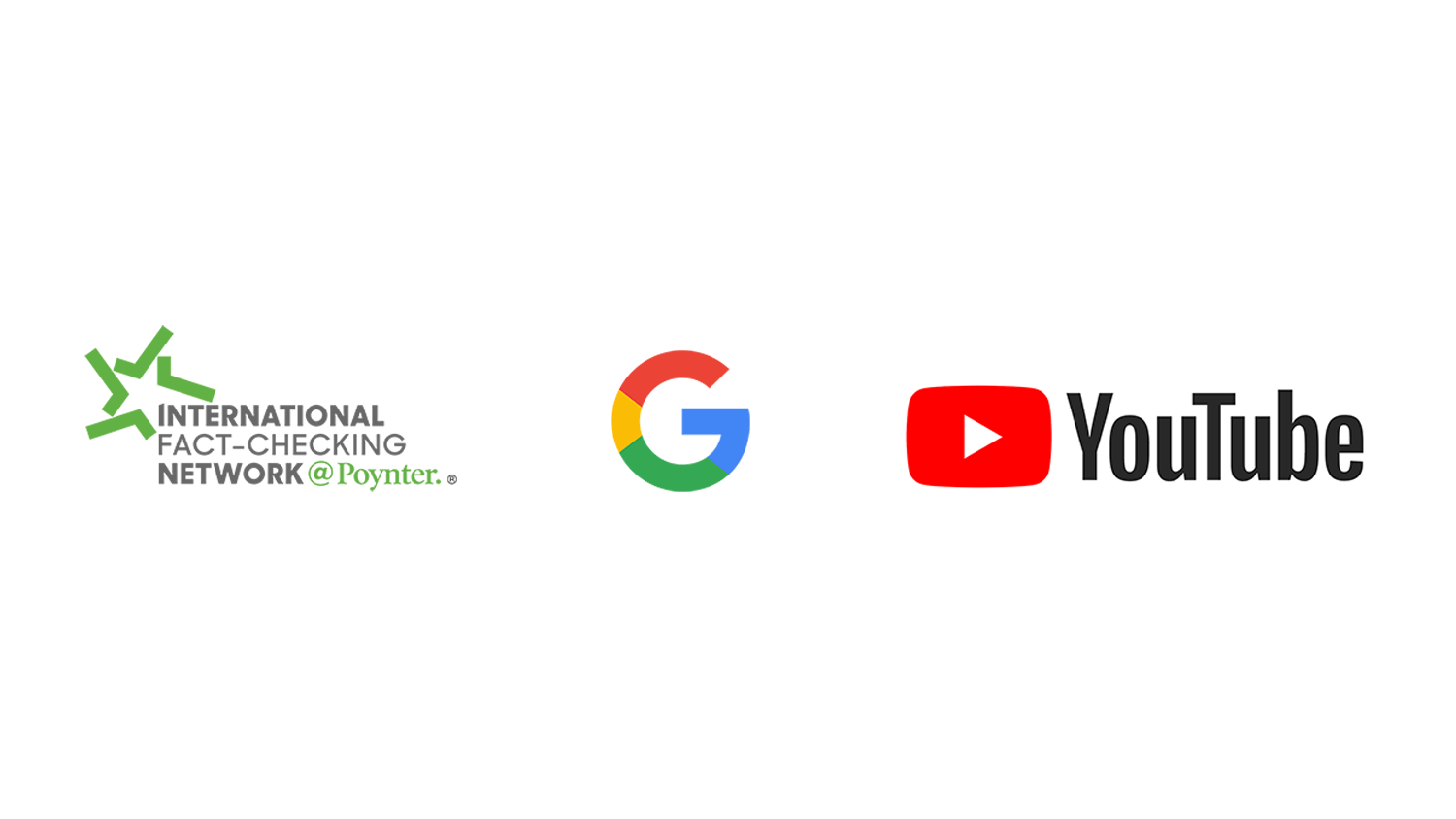Sixteen-year-old Enrique Anarte was frustrated with the lack of media coverage as toxic chemicals amassed at a dam near his hometown of Huelva, Spain around 2009. So he started reporting himself — and never stopped.
First on his personal blog, then to VICE and the Huffington Post, and more recently Reuters, Deutsche Welle and NBC.
“I decided that writing about the issues that I cared and worried about was going to be my way of dealing with them,” said Anarte, who now leads TikTok content creation at Thomson Reuters Foundation’s LGBTQ+-focused news platform Openly.
Now, Anarte has joined the MediaWise Ambassador program to extend his work highlighting under-covered issues surrounding misinformation about the LGBTQ+ community. As a MediaWise Ambassador, he’ll leverage his experience managing Openly’s audience of almost 200,000 followers and millions of monthly viewers — which he joined during the pandemic — to teach digital media literacy through the lens of fact-checking and journalism.
“At first (TikTok) was just a way to distract myself during lockdown,” Anarte said. “But then I found a niche using trends to approach LGBTQ+ topics, on the one hand, and European Union politics on the other. Turns out the EU nerd inside me could be funny and go viral.”
In an email exchange, Anarte discussed what it means to be a voice of impartial LGBTQ+ news coverage.

(David Levitz) Enrique Anarte manages Openly’s audience of almost 200,000 followers and millions of monthly viewers on TikTok.
You are now a MediaWise Ambassador, what does this role mean to you as a journalist?
This means I’ll have less time to play with my cats… Besides that tragic fact, I’m very happy that anti-misinformation work and media literacy education will be a more important part of my life, because it’s a field I’m really passionate about and, unconsciously I think, the reason why I started doing journalism on TikTok: to bring my reporting where audiences are. As a Spanish journalist based in Berlin and working for a global outlet, I’m also very happy to work together with a U.S. institution, because I have the impression that we often miss the wider perspective of the local issues we’re dealing with – and very often when it comes to online misinformation, it tends to have international ramifications.
To date, Openly is the only specialized news brand offering impartial, global coverage of LGBTQ+ issues — and you are leading the TikTok coverage. What does this mean to you on both a professional and personal level?
I fell in love with Openly’s idea since I first heard about it, because it brings together journalistic impartiality and a global approach to LGBTQ+ issues — a combination we rarely see today. But I never thought I would have the honor to work for this incredible team, and for a newsroom as welcoming as the Thomson Reuters Foundation’s, and that I would be allowed and encouraged to unleash my creativity to shape Openly’s voice on TikTok. So I’m not lying when I say it’s a dream come true. I’m very proud of what our small team has achieved, and of everything we’ve learned as early adopters of native TikTok formats.
But that being said, and to be fully honest, the best part of my job happens whenever a young person, often 18 to 20 years old, randomly approaches me in the street here in Berlin, or while traveling to other European countries, and they start talking about how much they love our videos. Numbers are great, followers are cool, but making a positive impact on a person’s life is a million times better. Someone once grabbed me at like 3 a.m. in a club and said: “Your videos about queer life in Berlin and Germany are basically the reason why I moved here.” They made my day and my week and my month.
Is there a specific piece of misinformation you have covered that you believe media literacy education would have prevented from going viral?
I’m particularly proud of our impartial, balanced coverage of trans rights legislation in Europe, and particularly regarding self-ID or self-determination. In the past months, I’ve seen so much online misinformation and disinformation, as well as confusion in private conversations with friends or family members, about what the different self-ID bills that are being discussed or have been passed in different European countries mean, and what their tangible impact is. I’m happy I’ve been able to write several articles and make many more videos on the topic for Openly, because there is clearly an interest from audiences across the world regarding these bills or laws, what they actually say, and why there is so much controversy around them. Media literacy education would definitely play a huge role in making individuals and communities less vulnerable to misinformation.
Be sure to follow Openly News on TikTok by following this link.

(Luigi Bencosme) Enrique Anarte has reported for VICE, the Huffington Post, Reuters and NBC.
How do you think media literacy can be helpful for the LGBTQ+ community?
The LGBTQ+ community has a long history of finding shelter and community online — but that doesn’t mean queer individuals are immune to the challenges one faces today when it comes to fact-checking and verifying information online while staying safe from digital abuse. I believe there’s a lot we can do to empower these individuals, as well as allies, with media literacy education.
About The Poynter Institute
The Poynter Institute is a global nonprofit working to address society’s most pressing issues through professional journalism education, fact-checking, media literacy and ethics. The Institute is a gold standard in journalistic excellence and dedicated to the preservation and advancement of press freedom in democracies worldwide. Through Poynter, journalists, newsrooms, businesses, big tech corporations and citizens convene to find solutions that promote trust and transparency in news and stoke meaningful public discourse. The world’s top journalists and emerging media leaders rely on Poynter to learn new skills, adopt best practices, better serve audiences, scale operations and improve the quality of the universal information ecosystem. Support for Poynter upholds the integrity of the U.S. First Amendment and builds public confidence in journalism and media, an essential for lasting democracy. Learn more at poynter.org.
About MediaWise
MediaWise is a social-first digital media literacy initiative of the nonprofit Poynter Institute. The program teaches people of all ages and backgrounds how to responsibly engage with online content in the age of information overload. The fact-checking enterprise was created in 2018 to empower citizens to find trusted sources and make sense of the vast amount of information at their fingertips. We bring simple, yet effective, digital media literacy tools to people where they are — whether they’re on Facebook, Instagram, YouTube, Twitter or TikTok or in one of the six countries where MediaWise operates — and walk them through every step to determine what’s real and what’s not on the internet. Through MediaWise, everyone can do their part to reduce the spread of misinformation and elevate the truth. Follow MediaWise on social media to learn how to debunk viral claims and be more critical consumers of online information. Explore programs and be part of the solution at poynter.org/mediawise.
About Openly
Openly is the LGBTQ+ news platform of the Thomson Reuters Foundation (TRF), the corporate foundation of the global news and information services company. An independent charity, TRF works to advance media freedom, foster more inclusive economies, and promote human rights. Its TikTok channel was the first specialised queer news outlet to cover LGBTQ+ issues impartially on the platform, and despite its small team and young brand it has cultivated a native Gen-Z audience of millions of monthly users across the world – particularly in the U.S., the United Kingdom, Germany, Philippines and Poland.







